Artist Christopher Vidal - Blog
Welcome to my blog. The aim of this blog is to share with you some of my experiences related to my artworks, what inspires me and also how it is done. As an artist I am also constantly learning as this is an ongoing process. I also learn from my students when I am teaching in the class. Sharing what I know with others is also very satisfying. This is how we grow and improve.
I've been teaching art for a while now, and I must say that from this I learned a lot. This helps me to identify what each individual needs in order to become a better painter. Painting is not an easy task especially landscape painting. One needs to have the inspiration to paint a tree or a mountain and it is not a question of just wanting to paint something. I choose to paint something because there was an element that motivated me to do so ...that inspired me. It could be the game of light and shadows or simply the warm colors of a late afternoon. It is sometimes very difficult to translate the colors that nature shows us using paint on a canvas. This challenge could be also a way to motivate you to paint a scenery.
Most important is that you do not expect that every painting that you paint is going to be a masterpiece. You shouldn't be afraid that your final product is not what you expected in the first place. An unsuccessful painting should be the teaching ground for a better one that follows. This is how we learn. We learn from our own mistakes and from things that didn't work out as we wanted them but with an effort we try to make them better the next time.
So if you want to become a better painter then you have to practice and paint regularly. This is the only way how you can improve your techniques, discover ones of your own, learn your colors etc. It is all about brush mileage. The tutor is there to help you find your way, shows you the basics and how to use your tools in order for you to be able to develop yourself.
Looking forward to share with you my knowledge.
I've been teaching art for a while now, and I must say that from this I learned a lot. This helps me to identify what each individual needs in order to become a better painter. Painting is not an easy task especially landscape painting. One needs to have the inspiration to paint a tree or a mountain and it is not a question of just wanting to paint something. I choose to paint something because there was an element that motivated me to do so ...that inspired me. It could be the game of light and shadows or simply the warm colors of a late afternoon. It is sometimes very difficult to translate the colors that nature shows us using paint on a canvas. This challenge could be also a way to motivate you to paint a scenery.
Most important is that you do not expect that every painting that you paint is going to be a masterpiece. You shouldn't be afraid that your final product is not what you expected in the first place. An unsuccessful painting should be the teaching ground for a better one that follows. This is how we learn. We learn from our own mistakes and from things that didn't work out as we wanted them but with an effort we try to make them better the next time.
So if you want to become a better painter then you have to practice and paint regularly. This is the only way how you can improve your techniques, discover ones of your own, learn your colors etc. It is all about brush mileage. The tutor is there to help you find your way, shows you the basics and how to use your tools in order for you to be able to develop yourself.
Looking forward to share with you my knowledge.
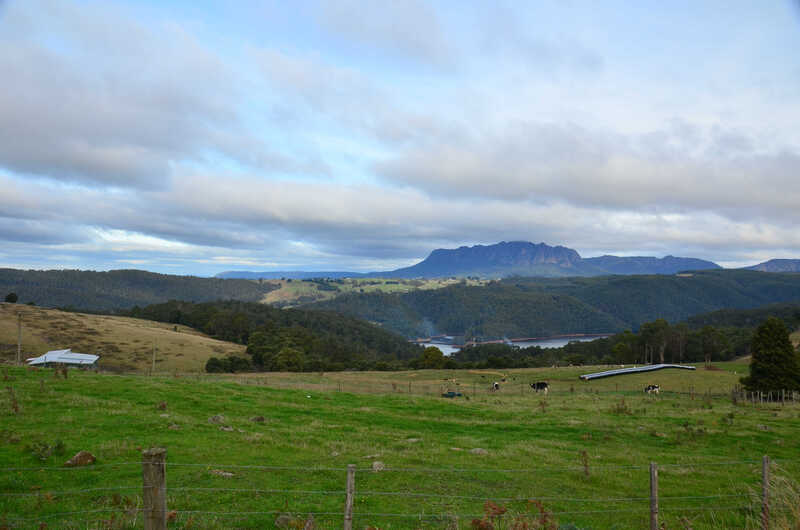
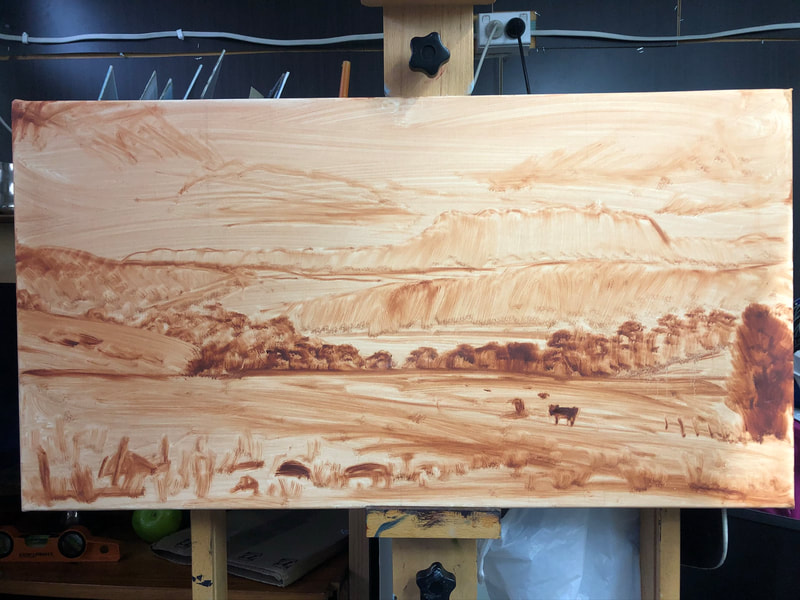
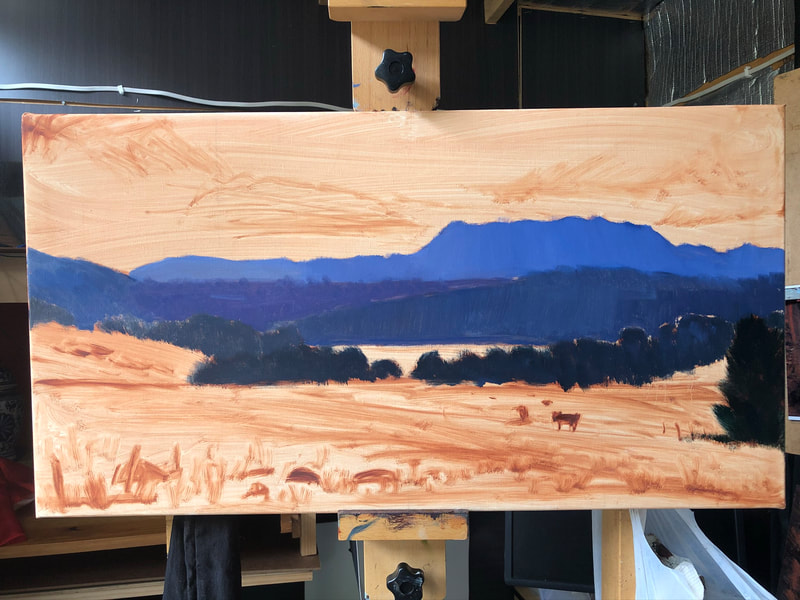
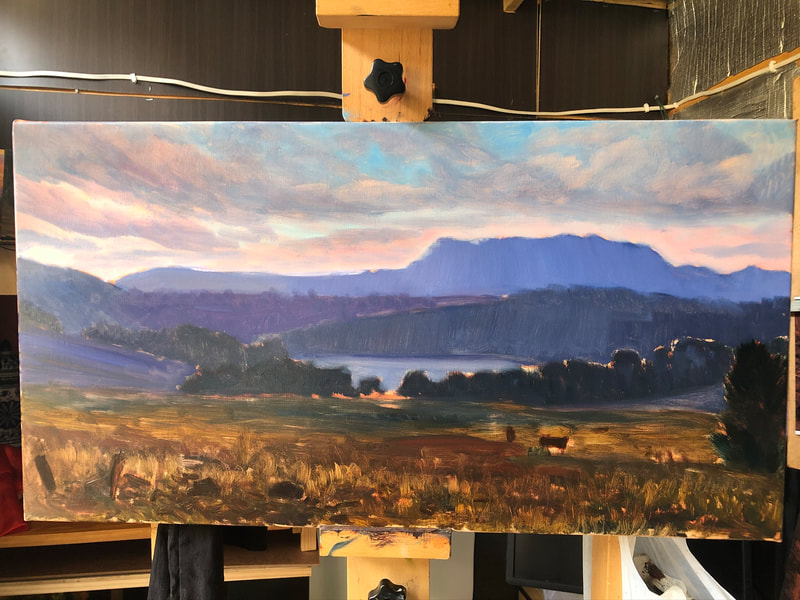
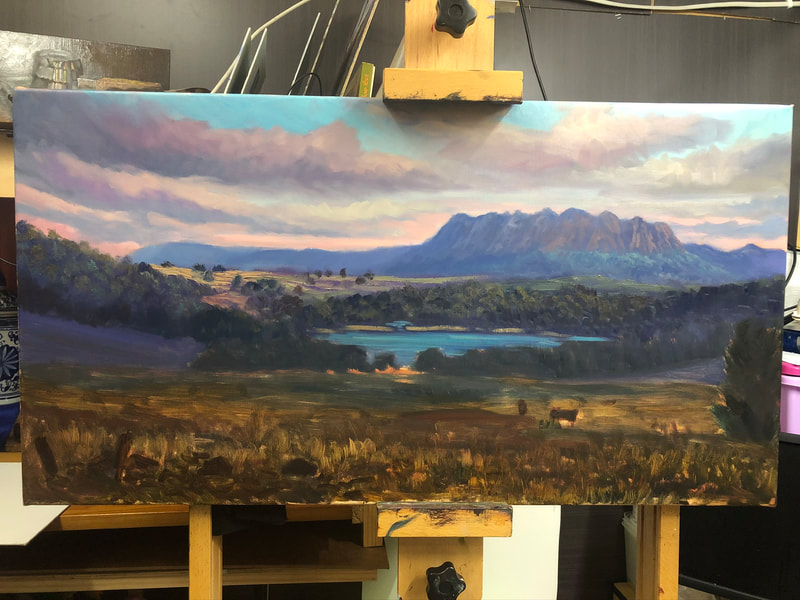
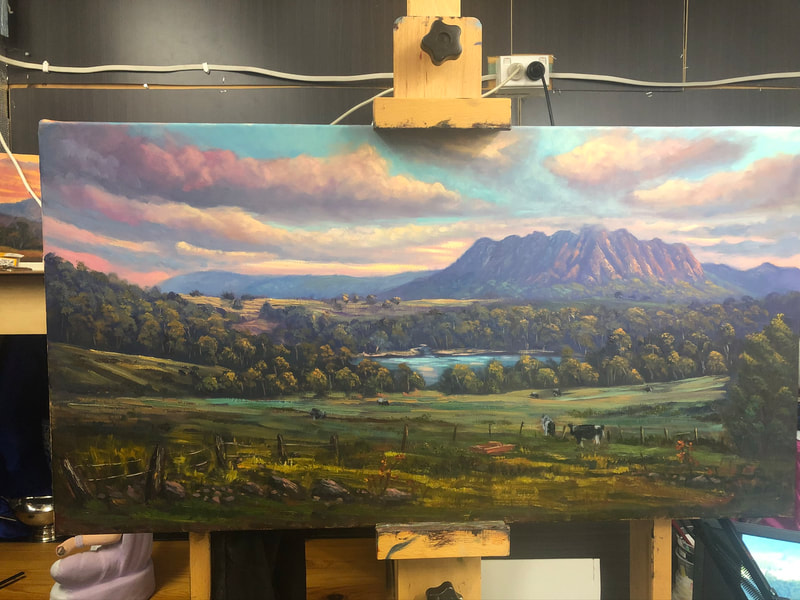
 RSS Feed
RSS Feed